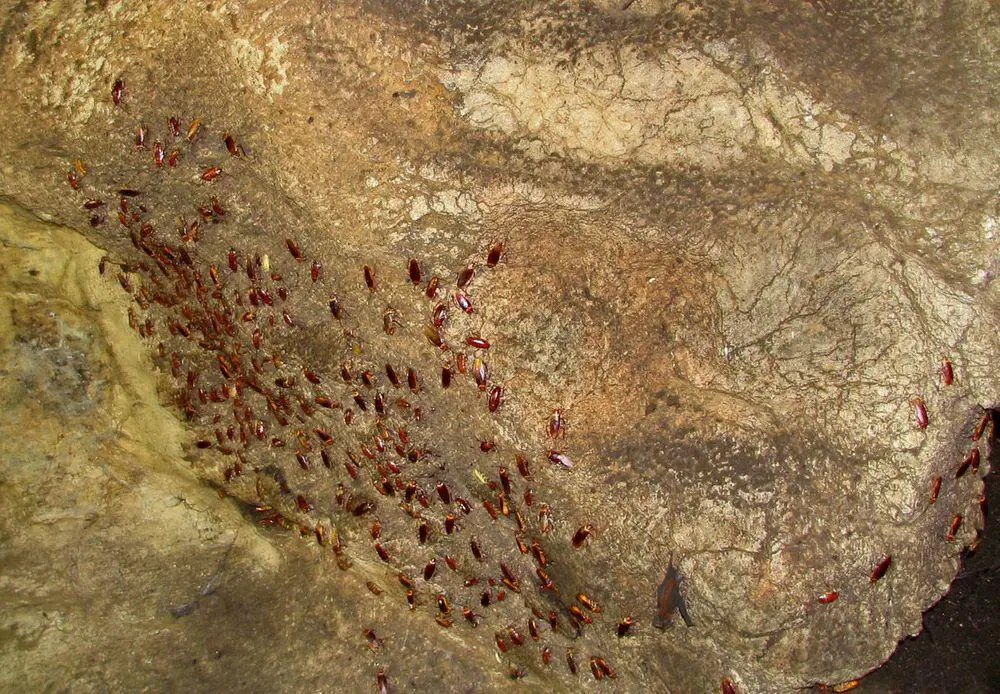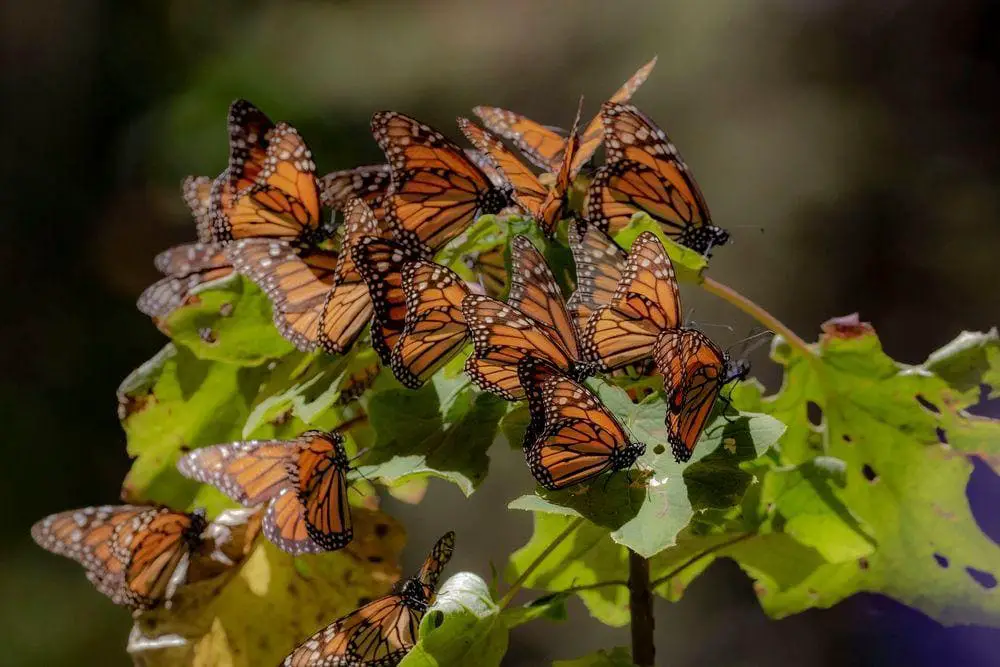Wondermondo 🢖 Categories of wonders 🢖 Biological wonders 🢖 Ecosystems 🢖 Animal colonies
Category
Animal colonies
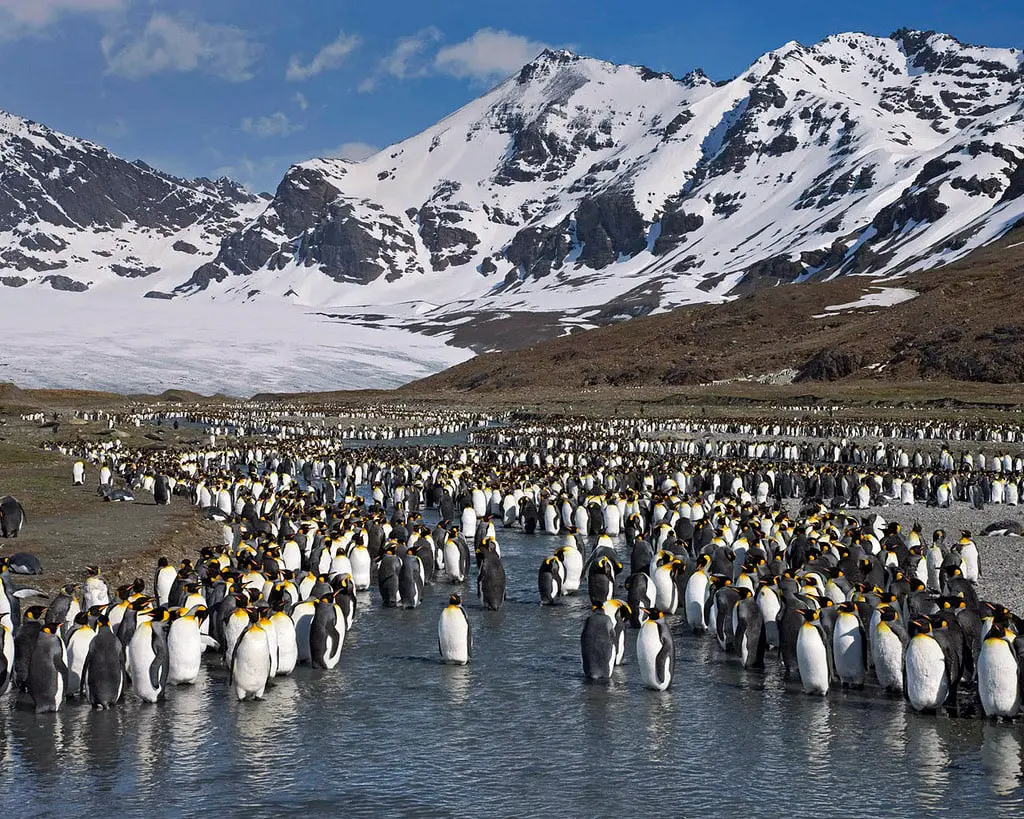
 Described animal colonies
Described animal colonies
If you see this after your page is loaded completely, leafletJS files are missing.
 Top 25 animal colonies
Top 25 animal colonies
Africa
Aldabra
Seychelles
Second largest coral atoll by land area in the world, with a unique ecosystem. Contains the world’s largest population of giant tortoises – 100,000 endemic Aldabra Giant Tortoises (Aldabrachelys gigantea) that dominate the ecosystem. Numerous other endemic species of animals and plants, including the flightless Aldabra rail (Dryolimnas cuvieri aldabranus).
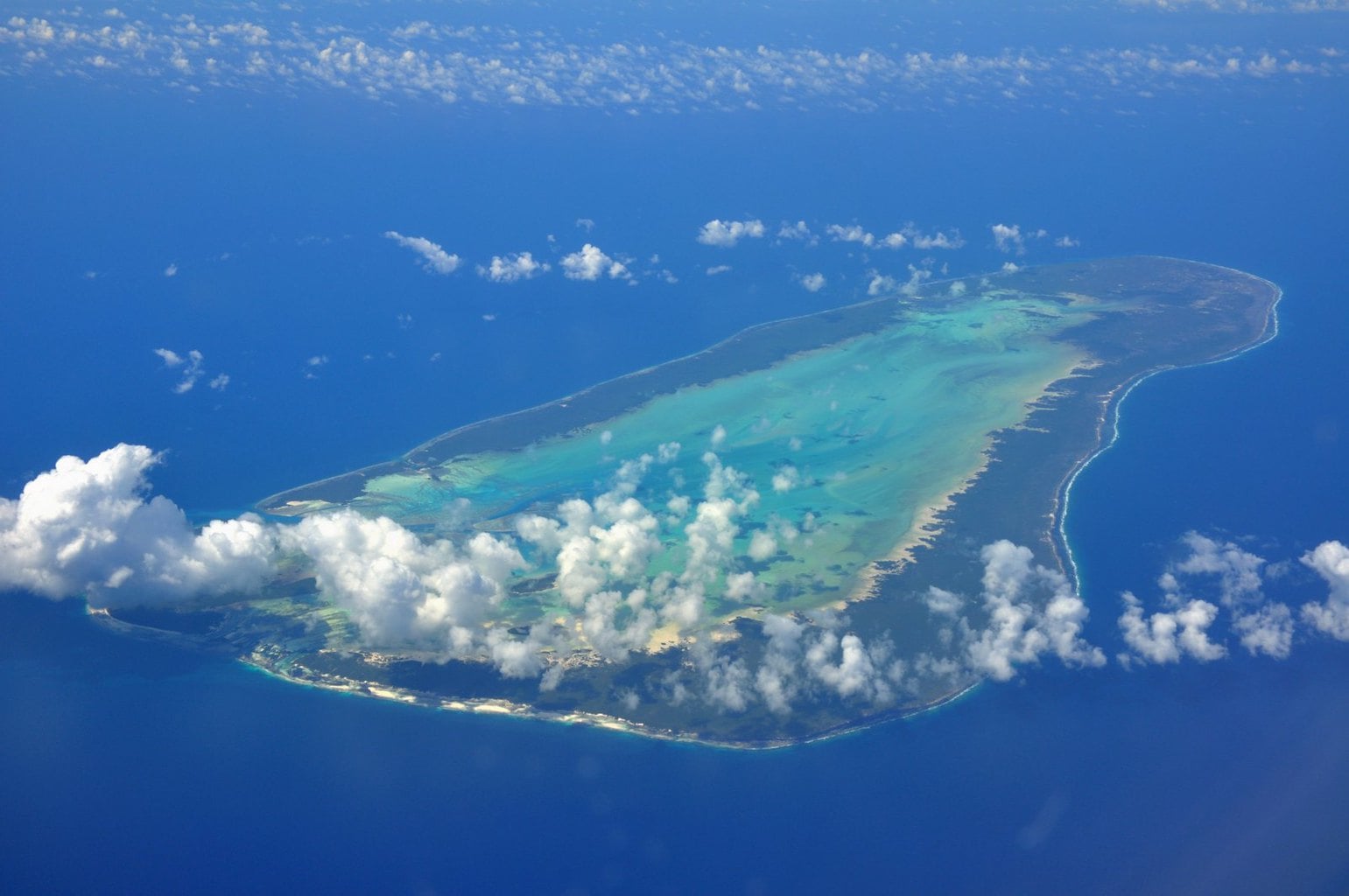
Ngorongoro Crater
Tanzania
The largest volcanic caldera in the world, up to 610 m deep and 260 km² large. Area of an exceptional concentration of wild animals, with 25,000 large animals living in the crater.
Bwindi Impenetrable Forest
Uganda
Intact montane rainforest, one of the richest ecosystems in Africa. Here live at least 120 species of mammals, 348 species of birds, 220 species of butterflies, and more than 1,000 flowering plants. Here live some 340 Bwindi gorillas – a disjunct population of Mountain Gorillas. Here live also chimpanzees – this is the only place in the world where both these primates are living together.
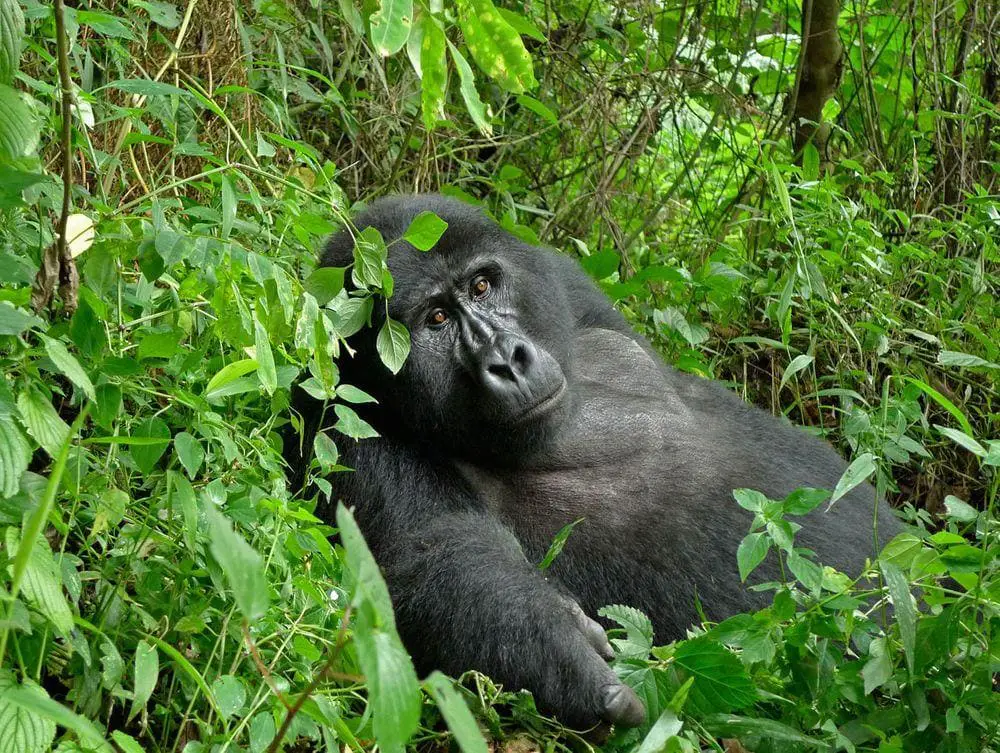
Lake Natron flamingo colony
Tanzania
The largest colony of lesser flamingo (Phoenicopterus minor) in the world, a major part of c. 2,5 million birds stay in this lake.
Antarctica and Subantarctic islands
Bird Island
South Georgia and the South Sandwich Islands (United Kingdom)
One of the richest wildlife sites in the world. The size of this island is just 400 ha but here live 50,000 pairs of penguins, 14,000 pairs of albatrosses, 700,000 petrels, and 65,000 breeding pairs of Antarctic fur seals.
Île de l’Est
Crozet Islands (France)
This largest known community of breeding seabirds in the world contains breeding birds of 32 species. Many of these species are represented by tens of thousands of birds and three species – Pelecanoides georgicus, Pelecanoides urinatrix, and Pachyptila salvini salvini are represented by millions of birds. Here are also three species of endemic plants and 59 endemic arthropods.
Penguin colony of Lusitania Bay
Macquarie Island (Australia, Tasmania)
This subantarctic island has several endemic plant and animal species and unusually looking biotopes of megaherbs. But especially impressive is the giant colony of royal penguins (Eudyptes schlegeli) – the island is the only known breeding ground of these beautiful birds. Lusitania Bay colony recently has been fully occupied and penguins are coming to other parts of the island as well. In total it is estimated that there are 0.5 – 3 million penguins breeding on this island.
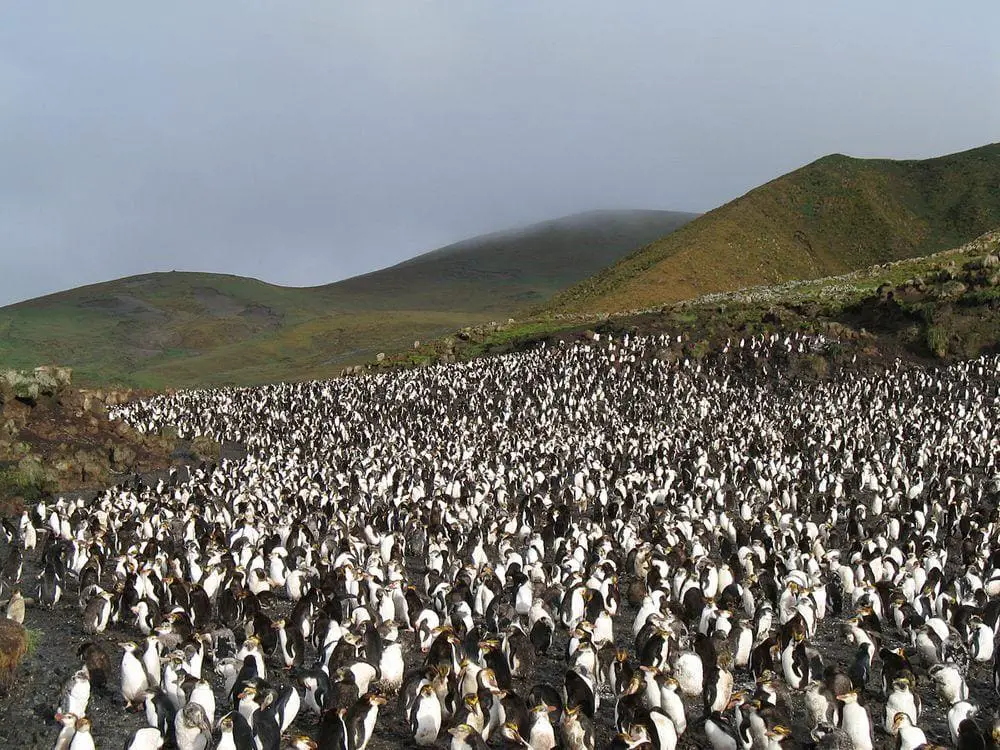
Île aux Cochons
Crozet Islands (France)
The largest rookery of penguin species Aptenodytes patagonicus (approximately 0.5 million pairs) in the world. Here live many millions of other birds. Two endemic plant species, and 59 endemic species of arthropods.
Salisbury Plain penguin colony
South Georgia and the South Sandwich Islands (United Kingdom)
One of the largest king penguin (Aptenodytes patagonicus) colonies in the world with more than 100,000 pairs. There are also thousands of elephant seals and fur seals.
Asia
Hoàn Kiếm Lake and turtles
Vietnam
Lake in the historical center of Hanoi. In the lake lives (or lived as it is critically endangered or extinct) unique soft-shell turtles that may belong to separate species Rafetus leloii. The existence of this legendary animal was proved only in 1998.
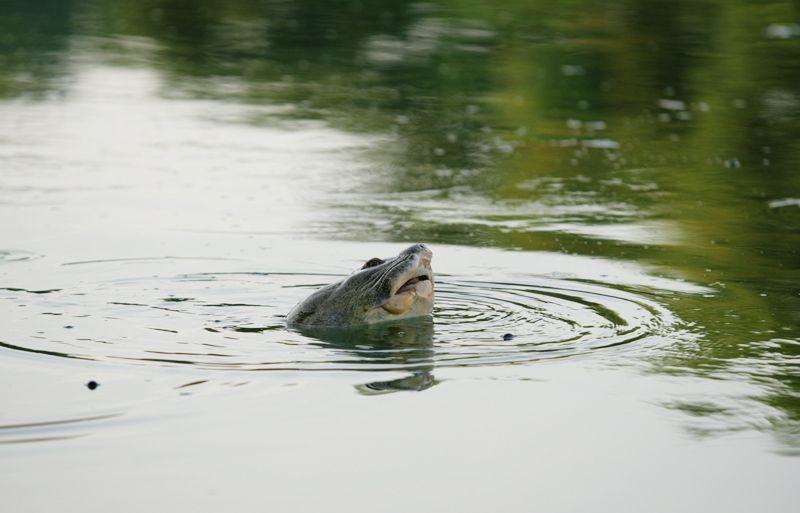
Donsol whale sharks
Philippines
The largest group of whale sharks – the largest fishes in the world – can be observed there. Sea near Donsol is visited by a group of 40 (sometimes hundreds) whale sharks on a regular basis from November to May.
Gomantong Caves
Malaysia
Well known due to swiftlet nests that are collected at 90-meter height for bird’s nest soups. Enormous colonies of bats, dung beetles, centipedes, and cockroaches.
Monfort Bat Cave
Philippines
This cave contains the world’s largest colony of Geoffroy’s Rousette bats (Rousettus amplexicaudatus) consisting of approximately 1.8 million individuals. It is believed that currently, this comparatively small cave is overpopulated – every spot in the cave is covered with bats.
Australia and Oceania
Jellyfish Lake (Ongeim’l Tketau)
Palau
A unique marine lake with an area of 5.0 ha, has an underground connection to the sea. Stratified in two layers that do not mix. Isolated from the sea for 12,000 years and contains a distinct population of two species of jellyfish – endemic Mastigias cf. papua etpisoni and most likely endemic Aurelia sp. Millions of these jellyfishes make strict daily migration around the lake. Four more marine lakes with jellyfish on the nearby islands but Jellyfish Lake is the only one open to tourists. The number of jellyfish has reached up to 31 million (January 2005), currently some 5 million.
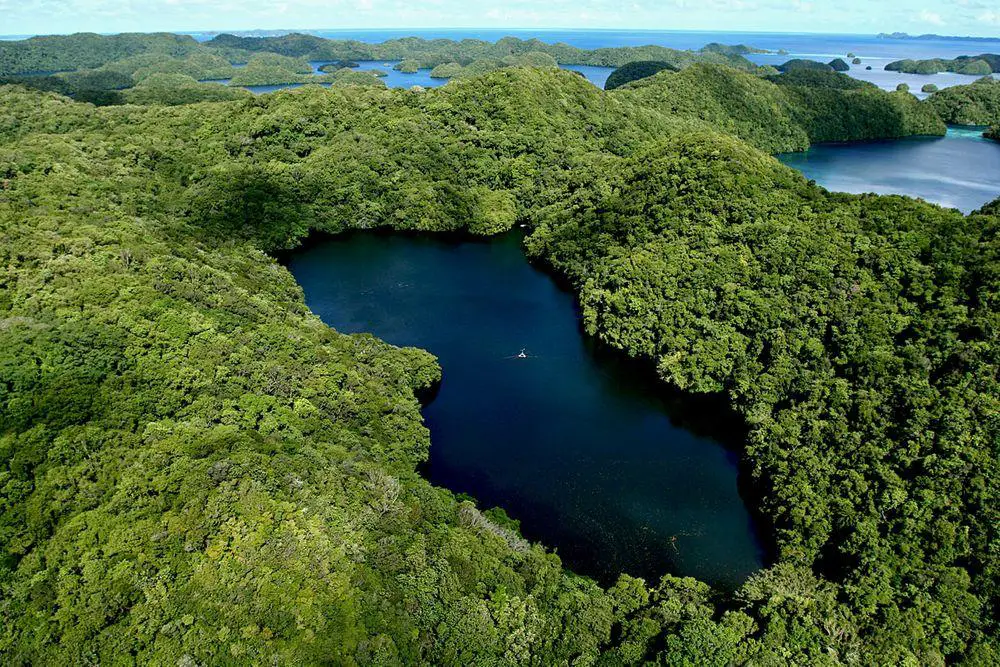
Christmas Island crab forest
Christmas Island (Australia)
The forest of Christmas Island is unique in the world due to the dominant species – some 50 – 100 million red crabs (Gecarcoidea natalis) – clearing the forest floor of leaves and other organic matter. These crabs are endemic to Christmas Island. Once per year, they migrate to the sea to lay their eggs, on the way blocking the roads and paths.
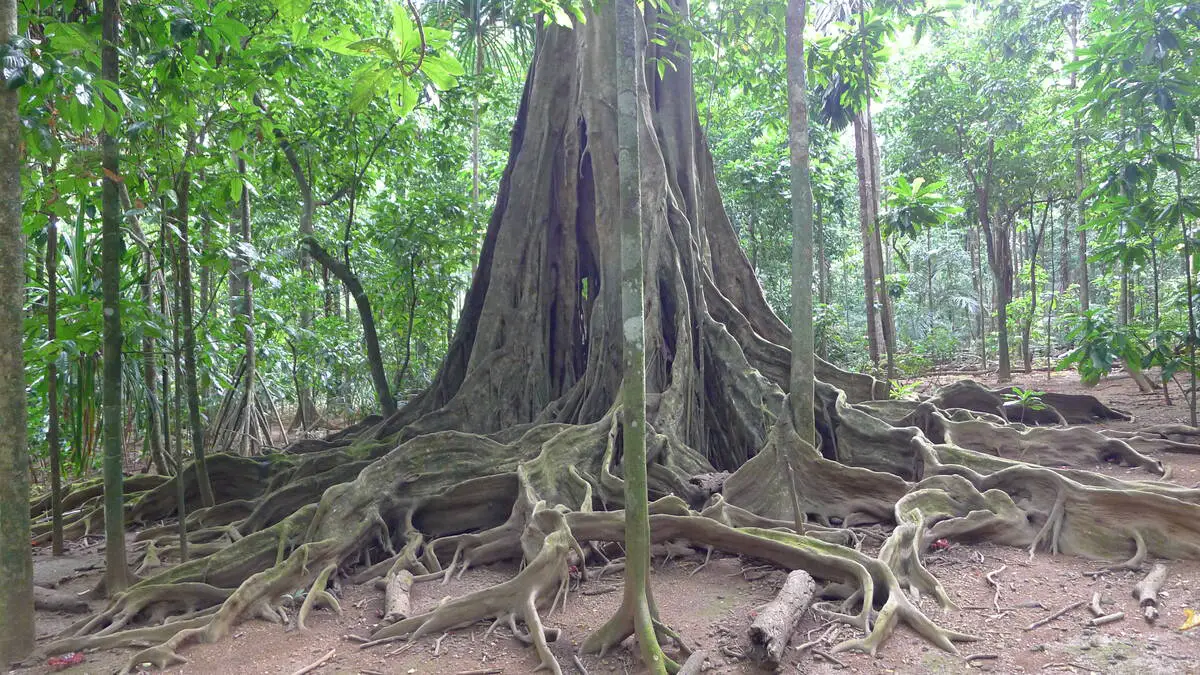
Vailulu’u Eel City and Moat of Death
American Samoa (United States)
A hydrothermal vent in the summit of an enormous submarine volcano that rises 4,200 m from the ocean floor. The Nafanue volcanic cone in the center of the 400 m deep caldera contains a group of hydrothermal vents inhabited by numerous eels (Dysommina rugosa). This is unusual – in general vertebrates do not live near hydrothermal vents.
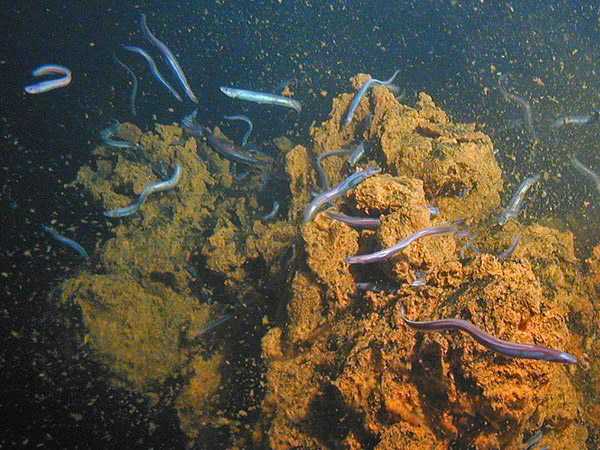
Hamelin Pool and L’haridon Bight
Australia
Hypersaline shallows with unique biotope – active growth of stromatolites – the oldest known form of life on Earth. Also other unique forms of life.
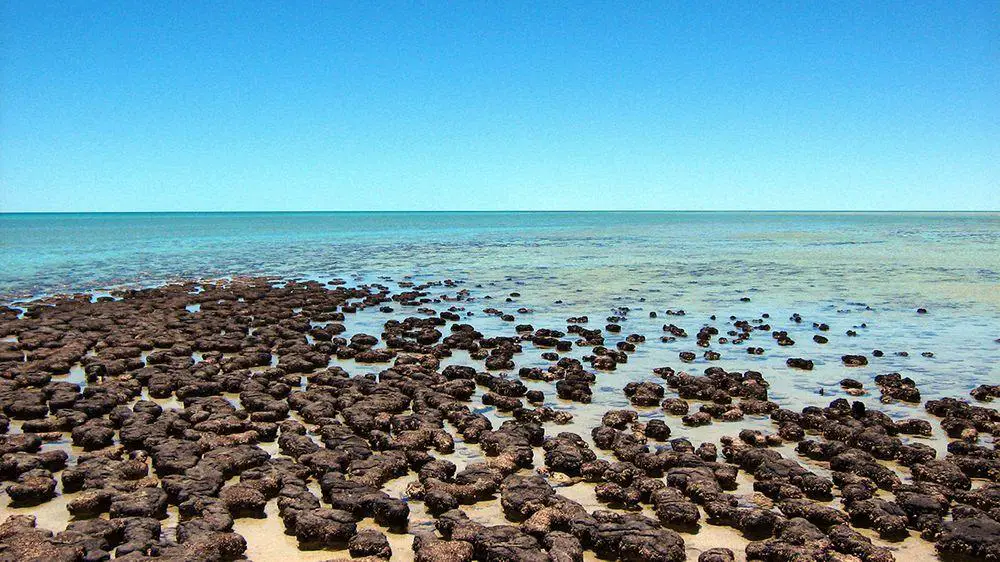
Litchfield magnetic termite mounds
Australia
Unique landscape formed by multiple flat termite mound formations oriented in the north-south direction in order to control the temperature inside the mounds. These mounds are built by a specific species of termites – Amitermes meridionalis.
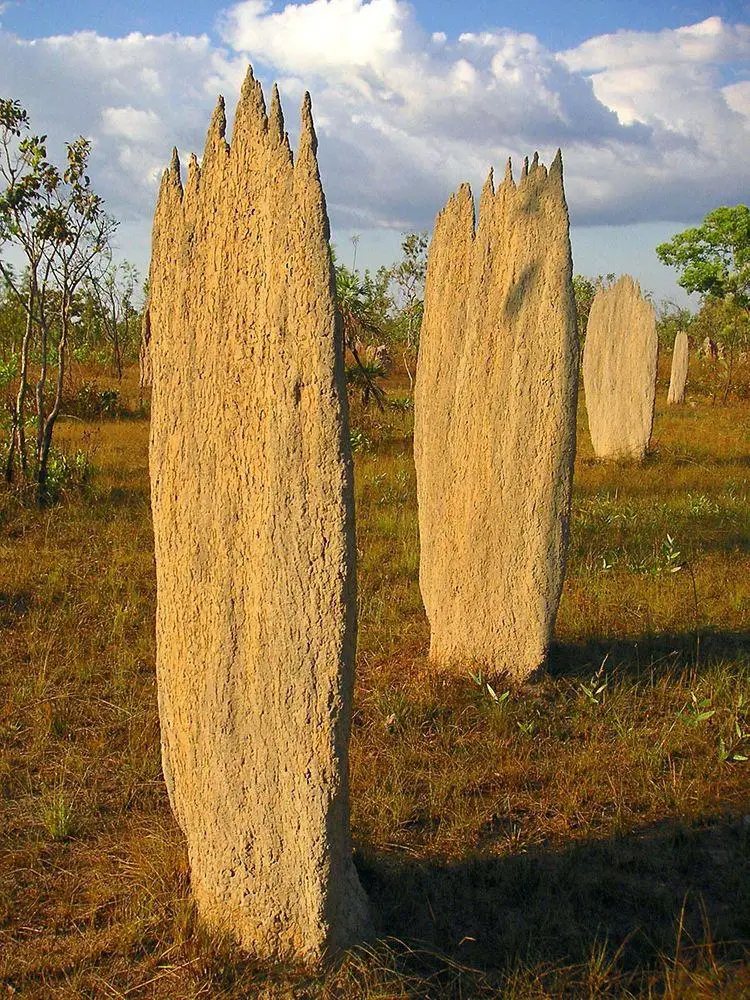
Europe
Abbotsbury Swannery
United Kingdom
The only managed colony of nesting swans in the world. Humans have assisted the nesting of swans here since at least 1393 – with the purpose to eat them (earlier). In the colony are living up to 600 swans.
Stappen bird cliff (Fuglefjellet)
Svalbard (Norway)
Up to 411 m tall cliffs. There live hundreds of thousands of Brünnich’s guillemots, northern fulmars, black-legged kittiwakes, glaucuous gulls, and other birds.
North America
Black Hole of Andros
Bahamas
300 m wide and up to 47 m deep round water-filled sinkhole with a layer of violet jelly layer of bacteria at 18 meters depth. Microorganisms have heated up the water to 40°C.
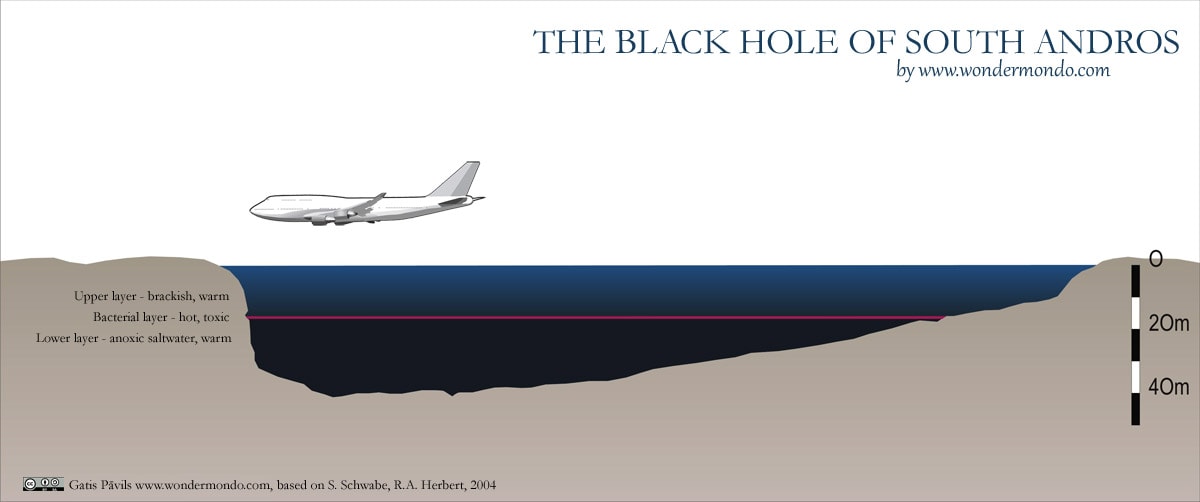
Monarch Butterfly Biosphere Reserve
Mexico
Wintering habitats of the monarch butterflies (Danaus plexippus). Some trees are covered with a thick layer of millions of butterflies.
Bracken Bat Cave
United States
Largest bat colony and the largest colony of mammals in the world. In the cave are living some 20 million Mexican free-tailed bats (Tadarida brasiliensis).
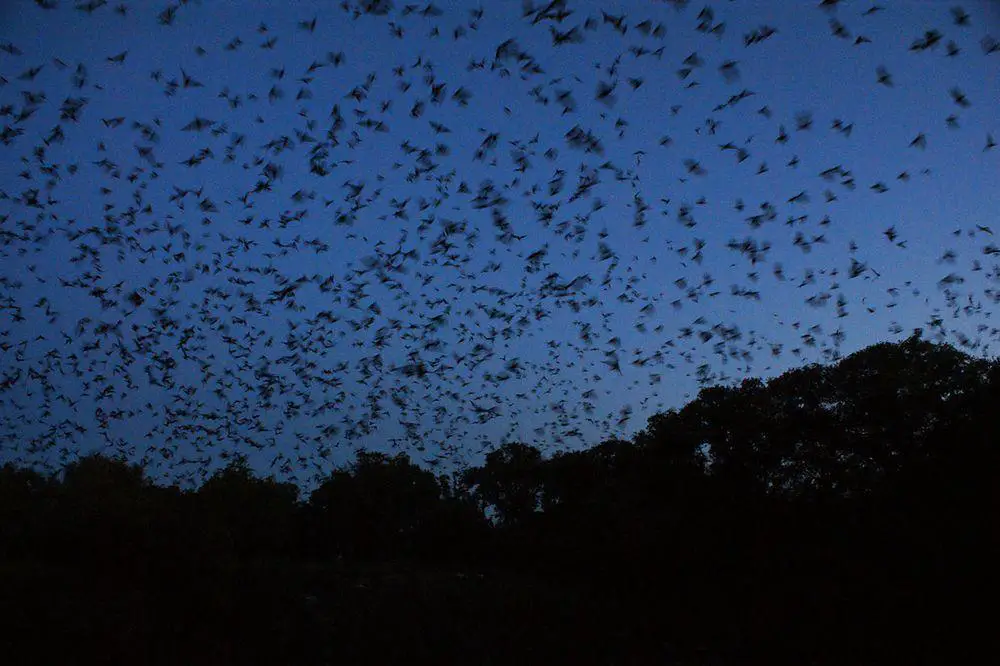
Brooks Falls
United States
Some 1.8-2 m tall and approximately 80 – 100 m wide waterfall that is world-famous thanks to a large group of brown bears catching salmon and other fish. Sometimes up to 50 bears can be seen on this waterfall.
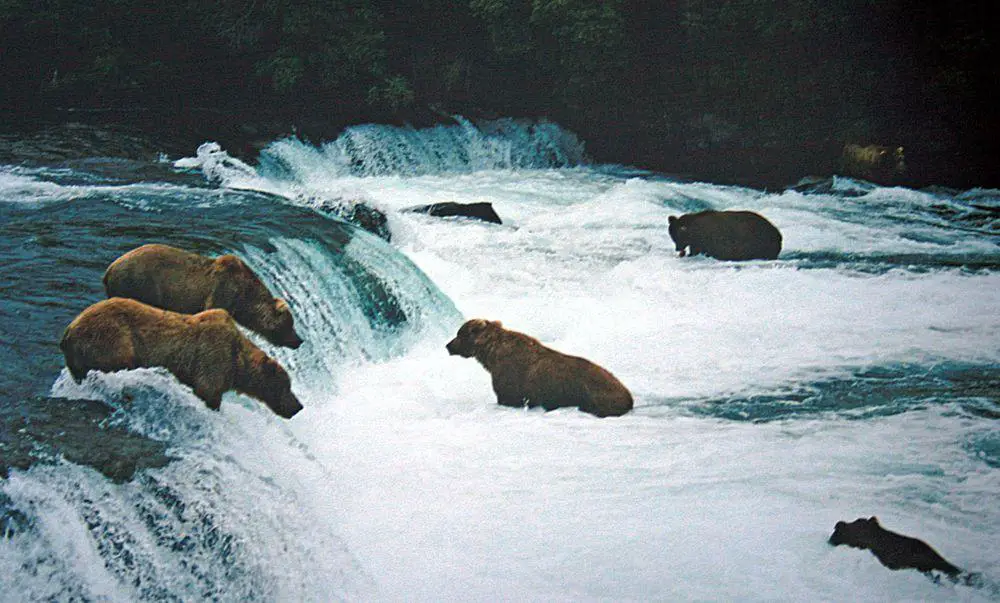
Bioluminescent Bay (Mosquito Bay)
Puerto Rico (United States)
One of the most spectacular bioluminescence sites in the world. The bluish glow is caused by dinoflagellates that feed on the leaves of red mangrove trees.
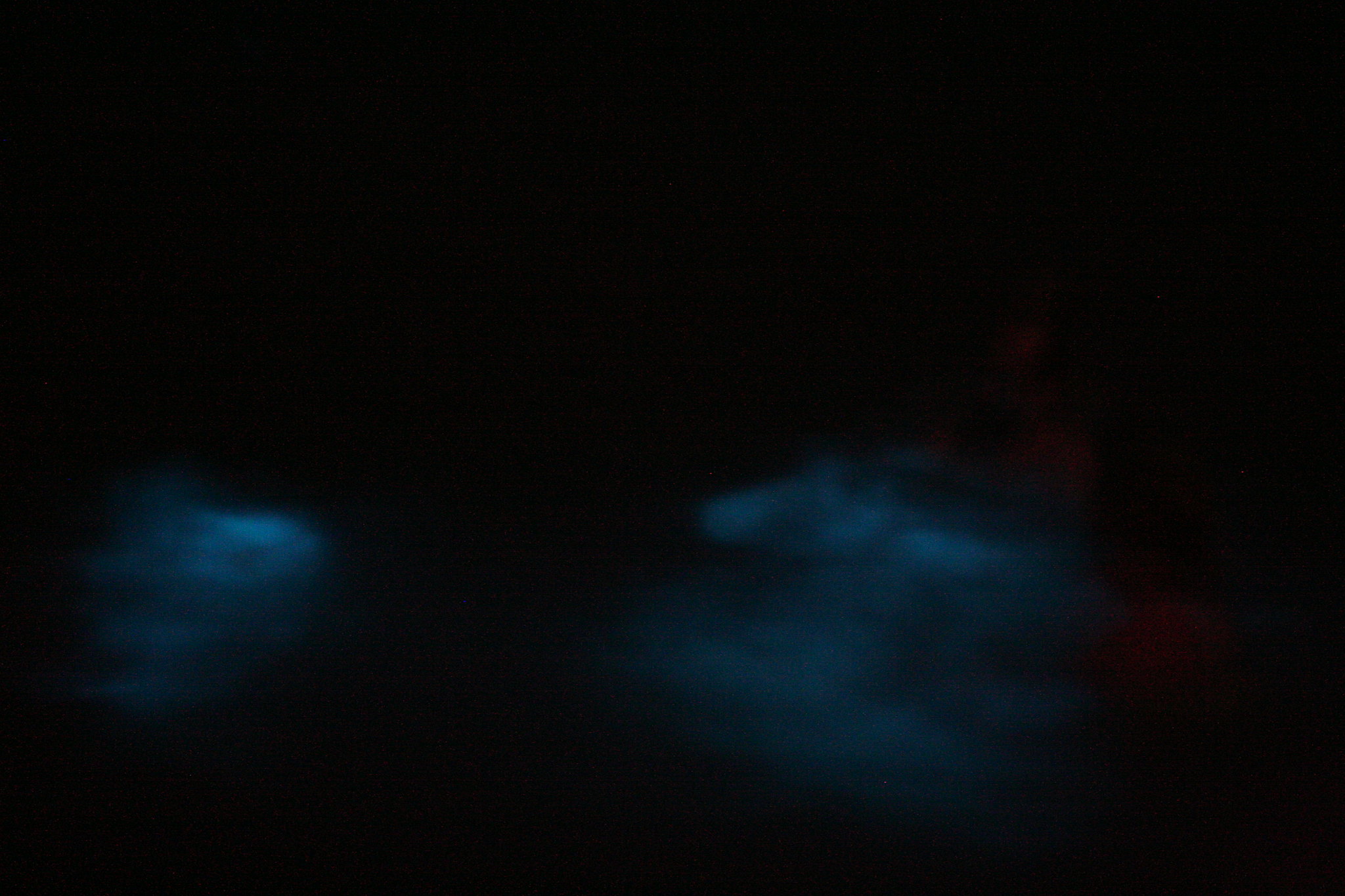
 Recommended books
Recommended books
Penguins: The Ultimate Guide
Penguins are perhaps the most beloved birds. On land, their behavior appears so humorous and expressive that we can be excused for attributing to them moods and foibles similar to our own. Few realize how complex and mysterious their private lives truly are, as most of their existence takes place far from our prying eyes, hidden beneath the ocean waves.

